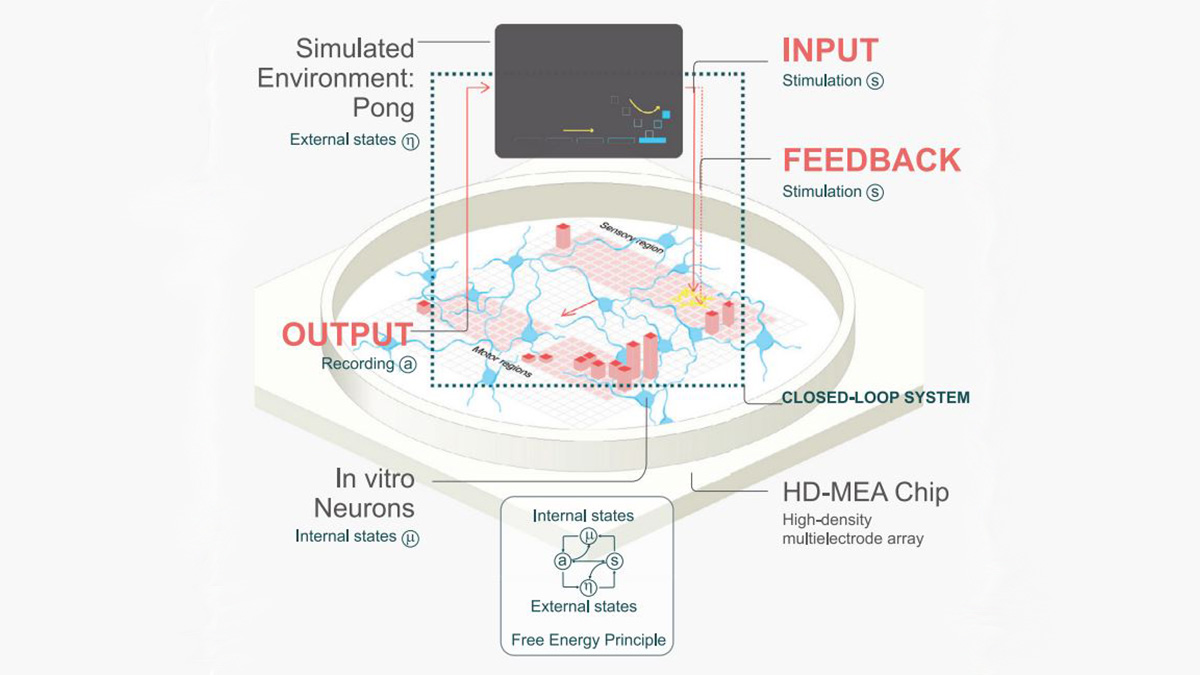- DZTL SciTech
- Posts
- Brain-on-a-Chip plays Pong
Brain-on-a-Chip plays Pong
How brain cells integrated into a computer chip learned to play an arcade game
Imagine teaching 800,000 brain cells to play Pong – that's precisely what the Australian startup Cortical Labs is doing! With a groundbreaking system that combines brain cells and a computer chip, DishBrain learns to play a version of Pong, pushing the boundaries of what's possible with "brain-on-a-chip" technology and opening up a new world of possibilities.

While DishBrain isn't an actual brain (it has a similar number of neurons to a bumblebee), its ability to learn Pong is impressive. Researchers used human neurons (called hiPSC) or mouse embryo neurons (called E15), placing them on a high-density multi-electrode array, similar to a silicon chip inside a petri dish. The neurons were then set up to play Pong by inducing zaps of different voltages depending on the ball's position relative to the paddle. This created a system where the cells started to 'learn' how to play the game better over time.
Here’s a video that explains it:
This exciting development could one day help us study the human brain without using animal models. As "brain-on-a-chip" technology advances, we might even be able to model different parts of the brain, understanding their functions and interactions better. This could also allow us to test how drugs affect specific areas of the brain with fewer ethical concerns than using actual humans or animals.
The DishBrain team describes their creation as 'sentient,' meaning it can sense information and respond, but it is not conscious. While DishBrain can 'respond' to stimuli, it is very unlikely to be aware of anything – think of it more like a knee being hit with a reflex hammer than a thinking brain.
Despite the fascinating potential of this technology, it also raises ethical questions. The research is happening not in a university but in a start-up lab, funded by venture capital money and with results that are patented. DishBrain's creators are striving for transparency, setting up online platforms for discussion and sharing their findings through the peer review process. Their goal is to create biological computer chips "to create machines with biological intelligence."
As we venture into this new territory, it is essential to keep exploring the ethical implications of such innovations. DishBrain is just the beginning of what could be a revolution in neuroscience and technology. As the technology evolves and becomes more advanced, we must be prepared to address the ethical concerns that will inevitably arise. So, let's keep an eye on DishBrain's journey and see where it takes us in the ever-evolving world of science and technology!

